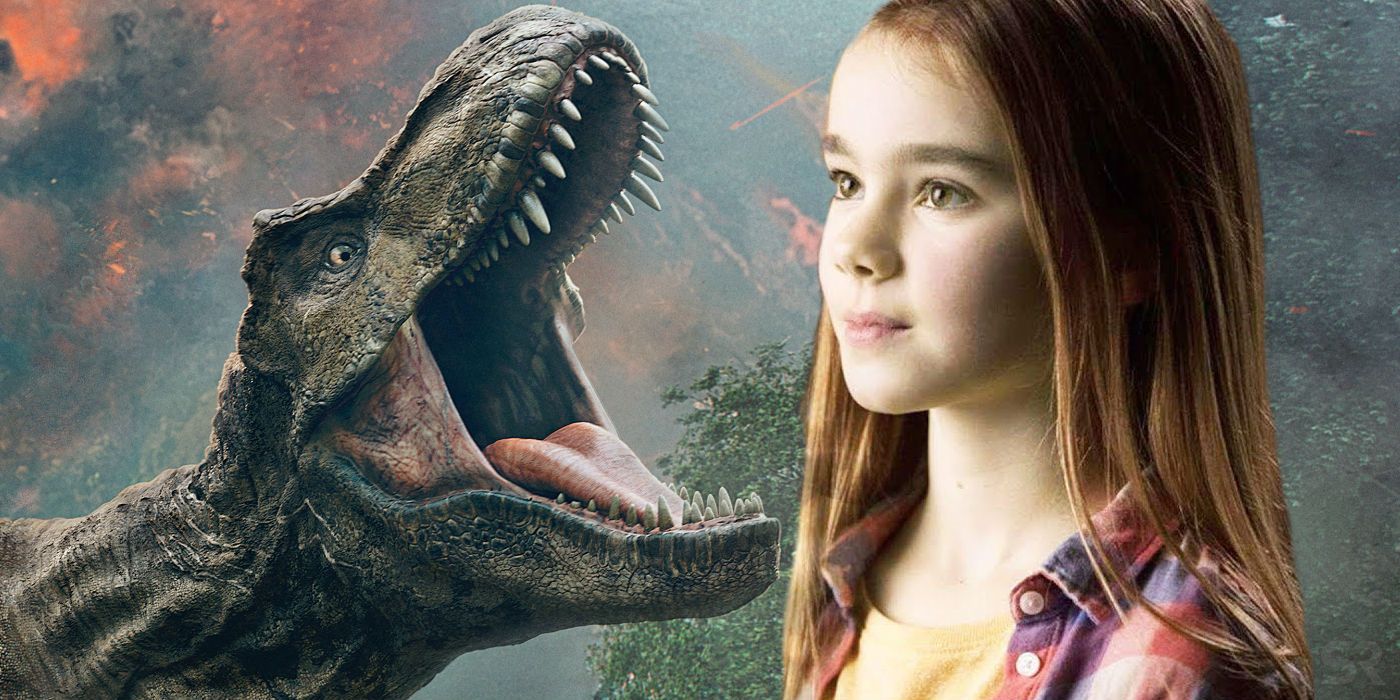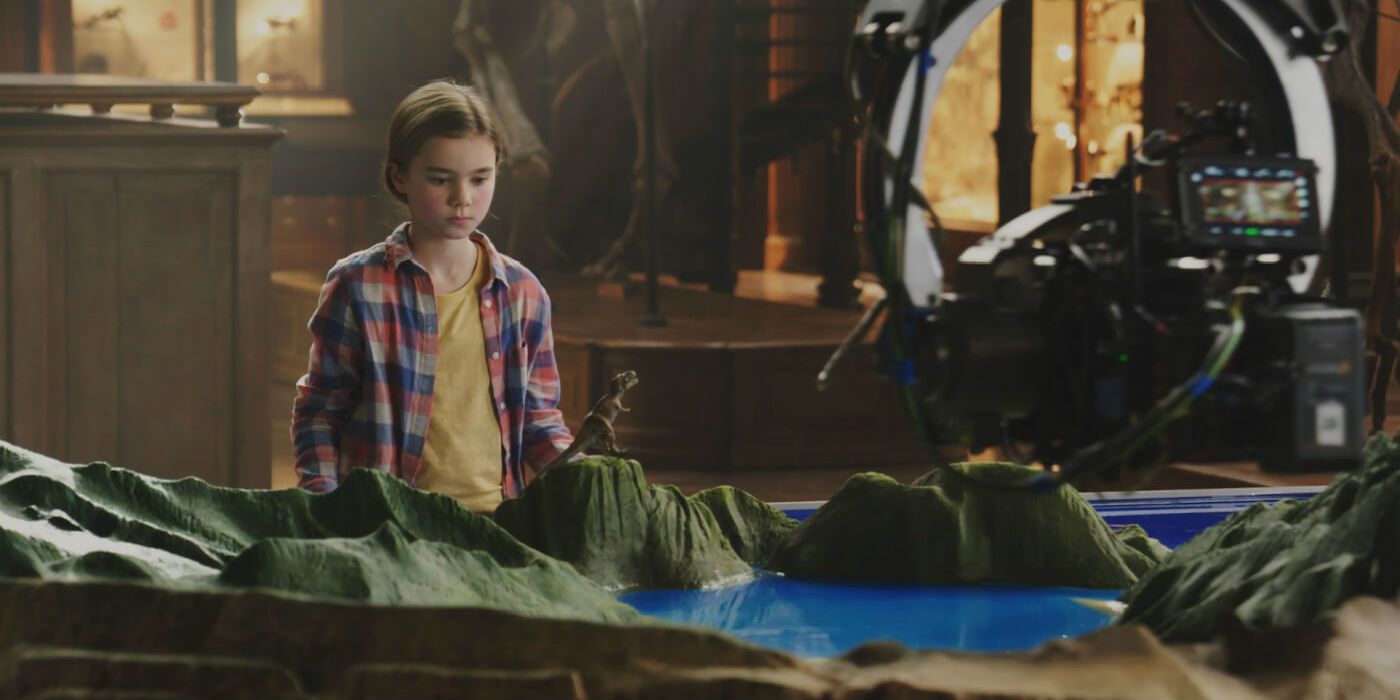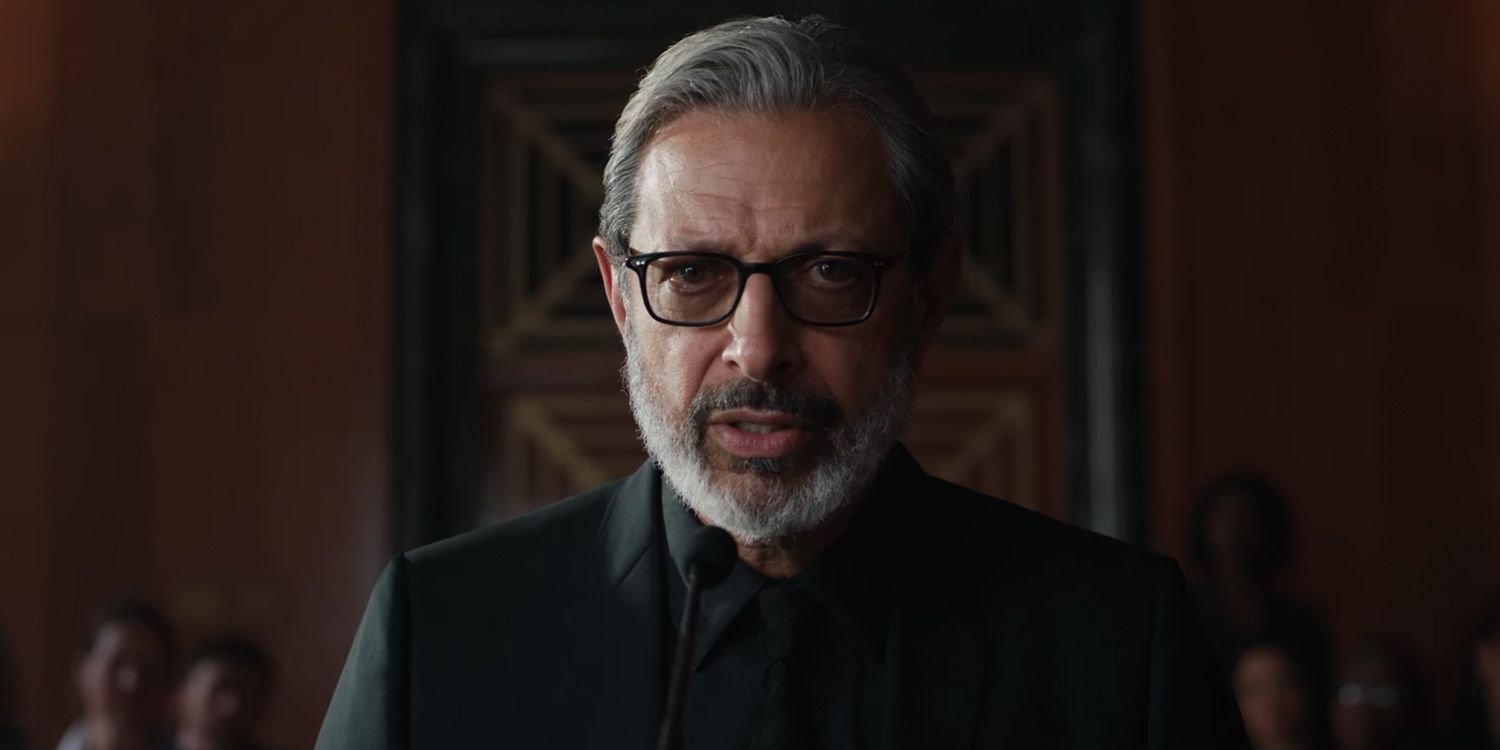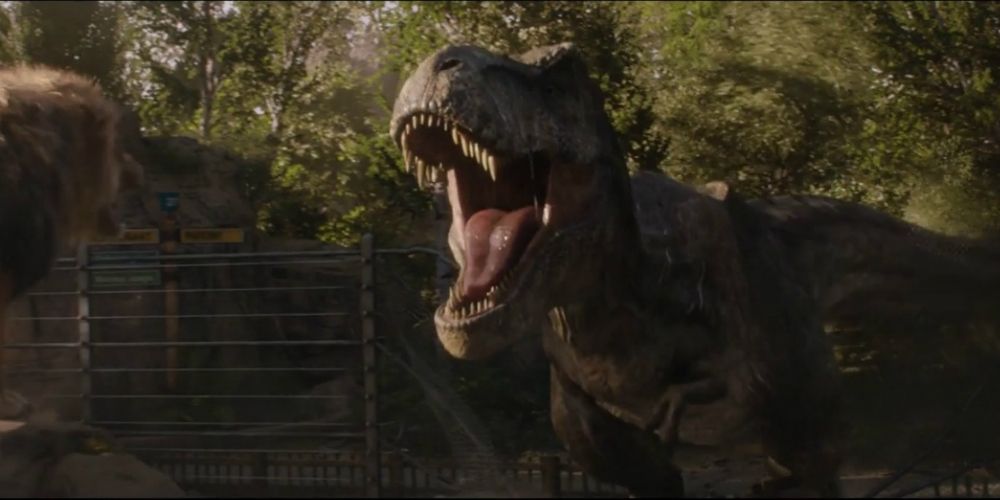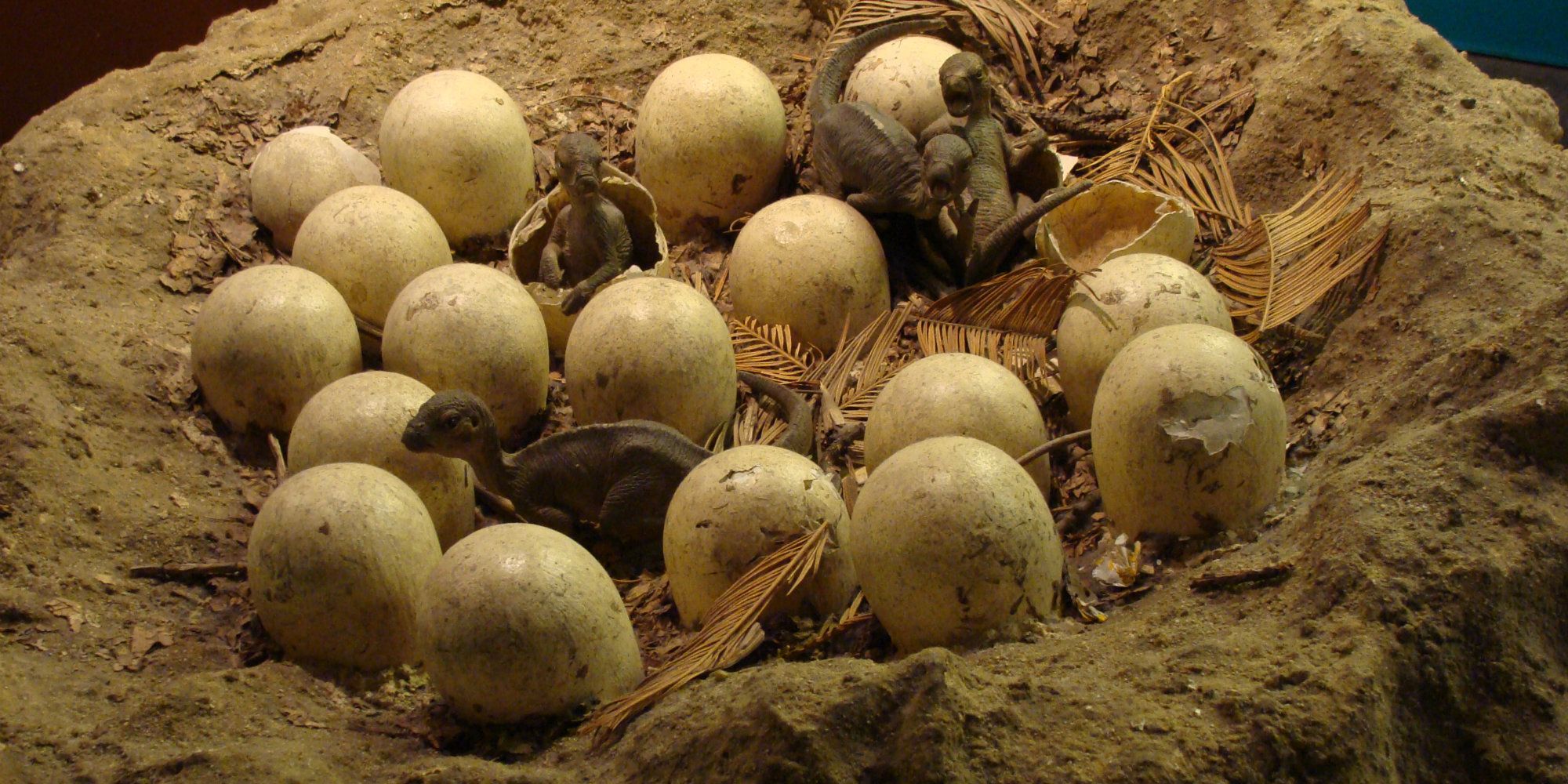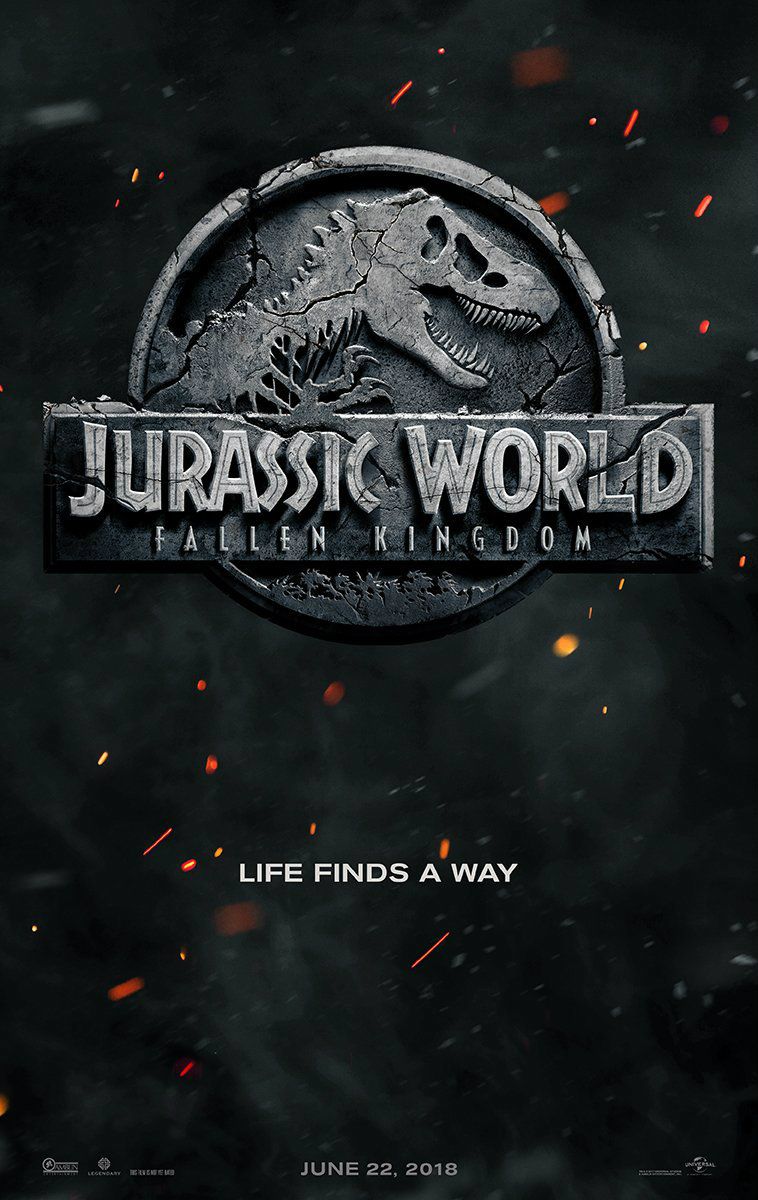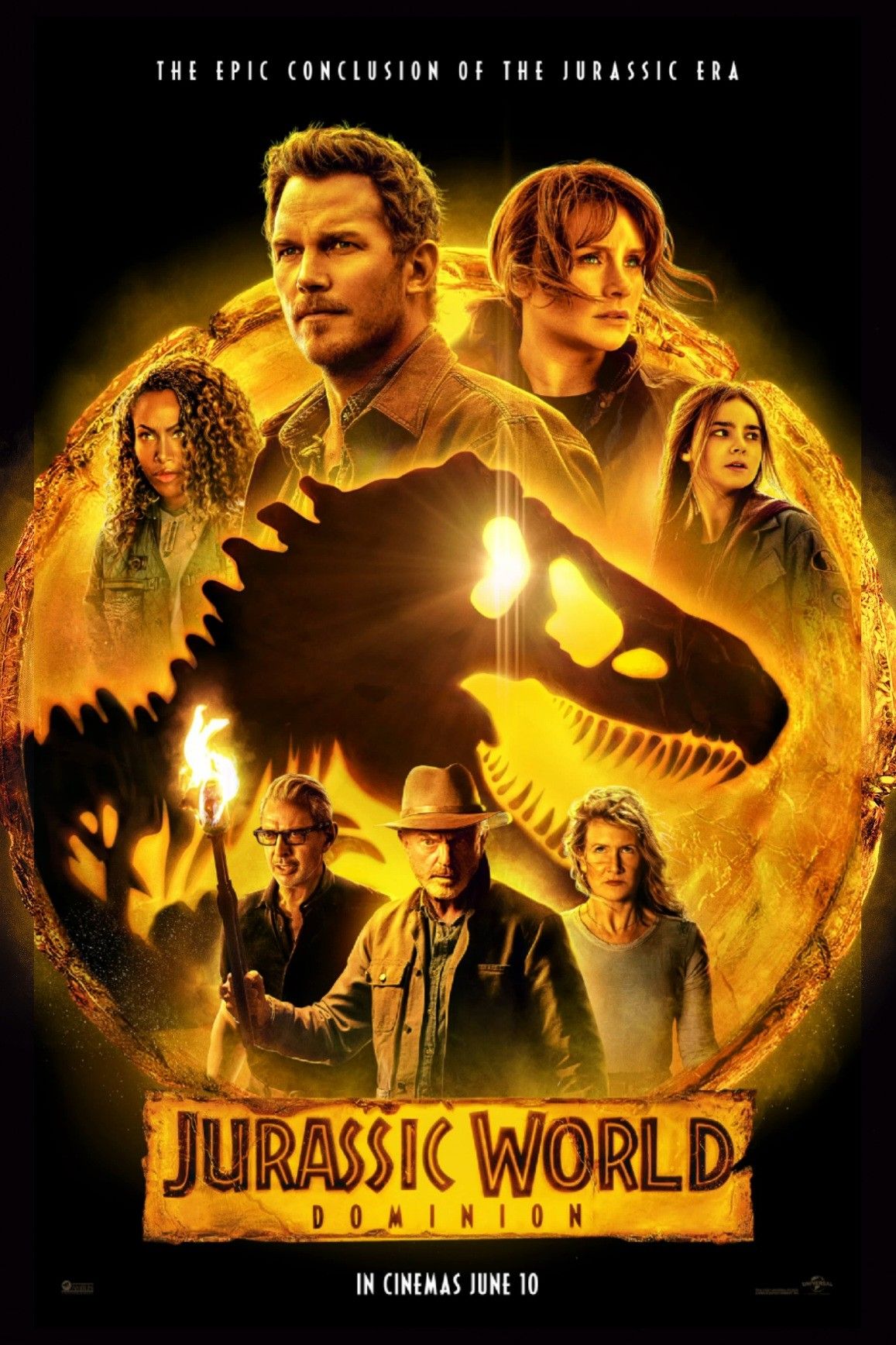Warning: SPOILERS ahead for Jurassic World: Fallen Kingdom
-
The end of Jurassic World: Fallen Kingdom simply doesn't make any sense - though it's clear setup for 2021's Jurassic World 3, a film that will surely live up to the promise of being about a "Jurassic World." That was part of Colin Trevorrow's original vision for the franchise; he always pitched this as a trilogy with a beginning, a middle, and an end. It's all one big story, told over the course of three films.
Unfortunately, Jurassic World: Fallen Kingdom suffers from what novelists sometimes call the "saggy middle syndrome." It's where a writer has a concrete idea of the beginning and end of the tale, but they haven't quite thought through how the bridge between the start and end of their story works. In Fallen Kingdom, (which was directed by J.A. Bayona and co-written by Trevorrow) that's symbolized by a disjointed narrative and a strange attempt to switch genres at the halfway point. But unfortunately, that's not all. The film's ending - pivotal in setting up the future of the franchise - sadly falls flat. It contains a number of critical errors that just don't quite work.
- This Page: The Clone Twist and Dr. Malcolm
- Page 2: Does The Ending Even Work As Setup?
The Clone Twist
The biggest twist in Jurassic World: Fallen Kingdom is that the Lockwoods have perfected human cloning. Maisie isn't Lockwood's granddaughter - she's actually a clone of his daughter. That, it seems, is the in-universe reason for why we never heard of Lockwood in any of the earlier films; he and Hammond had a falling-out, with Hammond objecting to the idea of human cloning. The twist is signposted quite clearly, most notably with Lockwood refusing to let Maisie see any photos of her mother. A more subtle detail is the way the excellent Isabella Sermon portrays the character, with the girl cocking her head in a way that's reminiscent of Blue. Then, when the time is right, the film literally shouts out the key revelation. It does so for a simple, functional reason; the script needs Maisie to empathize with the dinosaurs in order to save them from extinction.
Will this idea actually be developed in Jurassic World 3? The concept of human cloning takes the franchise in a whole new direction - but one that feels ever-so-slightly off-brand. This franchise is about people surviving in a world of dinosaurs, not the ethical implications of human cloning. Frankly, this major idea actually feels as though it exists purely for the moment when Maisie presses a button and frees the dinosaurs.
Related: Jurassic World 2’s Ending: How It Sets Up Jurassic World 3
Ian Malcolm's Senate Hearings
Marketing for Jurassic World: Fallen Kingdom has stressed the importance of Jeff Goldblum's Dr. Ian Malcolm, but in reality he plays only a minor role. The beginning and end of the film feature what seem to be two different Senate Hearings, in which Dr. Malcolm gives his testimony. It makes perfect sense that he'd be called as an expert witness, but it does feel rather anticlimatic given how much hype there'd been about Goldblum's return to the franchise.
This also doesn't make much sense. Look carefully, and it's too clear that Goldblum turned up for a single afternoon of filming (he's even wearing the same suit in both shots). And why has the second Senate hearing actually been called anyway? The first one was a response to the imminent volcanic eruption on Isla Nublar. Given volcanologists would probably have been able to spot that eruption coming well over a year before it happened, there was plenty of time for the Senate hearing to be called. But the liberation of the dinosaurs is an unexpected event, and the authorities should probably be busy reacting to the fact that a Tyrannosaurus rex is wandering around the streets and that Pteranodons are flying over Las Vegas. This is far too sudden an emergency to call a long, drawn-out Senate hearing that will likely take months to reach a consensus.
Page 2: Does The Ending Even Work As Setup?
Freedom for the Dinosaurs
"Welcome to Jurassic World," Ian Malcolm declares at the end of the film, and we're treated to a montage of shots showing the dinosaurs roaming free. The Tyrannosaurus rex breaks into the lion enclosure to assert its dominance over the king of the jungle, the Mosasaurus snacks on some surfers, and we even catch a last glimpse of Blue. The (frankly underwhelming) end-credits scene shows Pteranodons flying over Las Vegas. This world no longer belongs to humans alone; it is now shared with the dinosaurs.
At least, that's what the film wants us to believe. In reality, only a single ship's worth of dinosaurs were saved from the eruption of Isla Nublar. We're told that Mills only acquired eleven different species. In some cases, Mills only managed to acquire one sample of each species - Blue is the last of the Velociraptors, and there's still only one Tyrannosaurus rex. All the cages were being successfully monitored by a security suite that had just 27 camera feeds - meaning we're probably talking less than 40 specimens released into the wild. Even if all those dinosaurs were the same species and could procreate with one another, we'd still be talking about a population so small that it borders on total extinction. So, Dr. Malcolm is rather overstating the case by insisting that humans will have to find a way to share the world with wild dinosaurs.
Related: Jurassic World: Fallen Kingdom Complete Dinosaur Guide
Making matters even easier to resolve, earlier in the film we learned that every dinosaur on Isla Nublar was implanted with a tracker. All the authorities need to do is capture a single dinosaur and identify the frequency those trackers operate on. They'll then be able to capture most of the dinosaurs with relative ease. The most difficult dinosaur to capture, ironically, would be the one species not released by Maisie; the Mosasaurus. That creature is simply too massive to catch, and if it felt it was threatened, it would simply dive into the ocean depths - beyond reach.
We're meant to believe that Jurassic World: Fallen Kingdom has set up some sort of "Dinogeddon." But it simply hasn't done so.
Dinosaur Genes
The end montage also stresses that dinosaur eggs and genetic samples are now out in the wider world, having been purchased by rogue arms and pharmaceutical companies, as well as likely by some rogue nation-states. This may actually be more of a problem than the liberation of the living dinosaurs; it's clearly intended to convey the sense that Pandora's Box has been well and truly opened, and that chaos will now spread across the planet.
But this, too, doesn't quite work. The auction was interrupted while most of the guests were still there, and the bidders fled in panic, in fear of their lives. It rather strains belief to suggest they stopped to pick up the cases of genetic samples and eggs that they've bought. No doubt several died after being head-butted by a Pachycephalosaurus, while others would just have been knocked out, and it seems likely the Indoraptor will have snacked on them. So the reality is that only a handful of eggs and genetic samples should have gotten out of that auction - at most.
Related: Is Jurassic World: Fallen Kingdom Too Intense For Kids? Here's Our Take
Meanwhile, the authorities have been alerted to this. It wouldn't take long to work out who was at the auction - security footage from the Lockwood Estate would have shown their faces. There'd no doubt be a swift international effort to lock this dinosaur technology down, while it's safe to say sanctions would be placed upon any rogue nation-states in order to stop them acquiring the cloning technology to take advantage of the genetic samples in the first place.
The wild card is Henry Wu, who by this point in the narrative is essentially your stereotypical mad scientist. Wu is quite likely to sell his knowledge to the highest bidder, and will likely become the world's most wanted.

